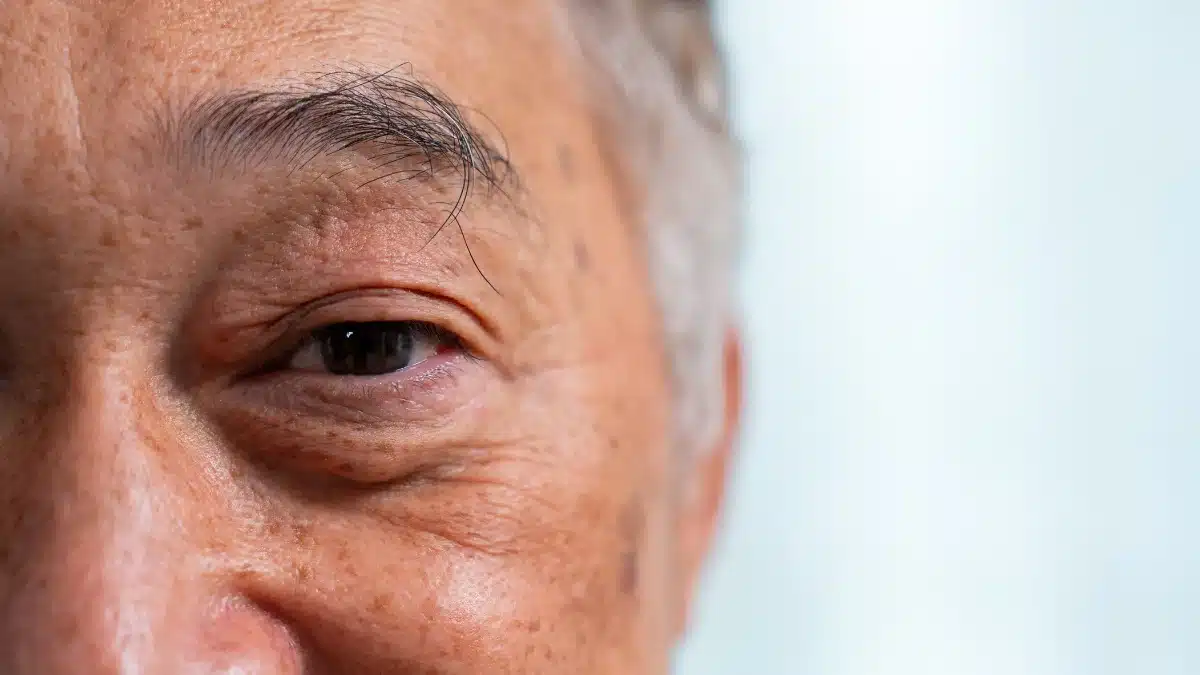A Cataract is a thick, cloudy area that develops in the eye’s lens.
When proteins in the eye clump together, it restricts the lens from relaying clear images to the retina.
Cataracts can commonly result in blindness if left untreated for an extended period.
Aging is the primary cause of Cataracts, along with trauma, radiation, or infections.
Cataract symptoms must be recognized in the early stage since they require immediate treatment.
This article will discuss the symptoms of Cataracts and how they develop over time.
Understanding Cataract symptoms
Cataracts is an eye condition in which a thick, hazy region forms in the eye’s lens.
The types of Cataracts often help to identify the symptoms associated with Cataracts, which often range from mild to severe.
Early symptoms of Cataracts are usually different from secondary Cataract symptoms.
Understanding these signs early will help in effective treatment and prevent visual loss.
Let’s understand these symptoms in detail for better understanding:
Early signs and symptoms of Cataracts
Individuals can experience a few subtle changes during the early symptoms of Cataracts.
Some of the common signs and symptoms of Cataracts are:
Sensitivity to light: Early Cataracts are frequently associated with pain and sensitivity to light or glare. A bright light or even the sun can cause disturbance.
Blurry vision: Blurred vision is one of the primary signs of Cataracts. It can be difficult to identify minute details or read small prints for affected individuals.
Fading colors: Colors may appear less vibrant in individuals in the early stages of Cataracts. Their vision may have a yellowish or brownish tint.
Difficulty with night vision: Individuals in the early stages of Cataracts may have difficulties seeing well at night or in dim lighting.
Primary symptoms of Cataracts
Cataracts cause noticeable vision changes, impacting clarity and sharpness.
Blurred vision, like seeing through a cloudy lens, is a common issue as the condition advances.
The blurred vision worsens to entirely hazy or clouded vision, making it difficult to see anything.
Research suggests that individuals with Cataracts may develop Diplopia and Polyopia symptoms.
During the early stages, a person’s spectacles or lenses may also require regular modifications.
Night vision difficulties escalate, making activities in low-light conditions challenging.
Polyopia is a visual condition where a person sees multiple overlapping images of a single object.
Secondary symptoms of Cataracts
 Source: pixel_shots
Source: pixel_shotsAdditional symptoms are experienced as Cataracts progress, indicating the condition’s advancement.
Individuals after Cataract surgery may experience secondary symptoms of Cataracts due to the development of scar tissue.
Colors may appear dull or faded, and the eye’s lens may show signs of yellowing or browning in this stage.
Secondary Cataracts may also make doing activities such as cooking, reading, and recognizing faces difficult.
How do Cataract symptoms progress
Early Cataract symptoms are mostly unnoticeable and have little impact on a person’s everyday activities.
At first, Cataract symptoms are mild, with occasional blurriness.
As the Cataract develops, these symptoms worsen, resulting in persistent blurred vision.
The lens grows more opaque and dense, compromising the affected individual’s vision.
If it is not treated, even in the more severe stages, a person can entirely lose their vision.
Are you curious about Cataracts affecting your vision?
Summing up
Recognizing and promptly addressing Cataract symptoms is essential for maintaining quality of life.
Fading colors, light sensitivity, blurred vision, and night vision difficulty are a few early Cataract symptoms.
During the primary stage, the blurred vision intensifies and becomes completely hazy or cloudy, making it impossible to see anything.
Some people get secondary Cataracts following Cataract surgery; the symptoms are usually worse.
Early diagnosis of Cataracts allows for preventive steps and a more effective treatment approach.
Frequently Asked Questions
What are the first signs of having Cataracts?
The early signs of Cataracts may include blurred or cloudy vision, sensitivity to light, and difficulty seeing at night.
In some cases, there is a noticeable increase in the need for brighter light when reading or performing tasks.
What age do Cataracts usually start?
Cataracts typically develop with age, and their prevalence increases after age 40.
While they may start forming at this stage, significant symptoms often emerge in individuals as they age.
However, Cataracts can occur earlier due to other factors like genetics or trauma.
How long does it take for Cataract symptoms to progress?
The progression of Cataract symptoms varies, but they often develop slowly over the years.
The timeline depends on age, genetics, and overall eye health.
Can Cataract symptoms be managed with medications?
Medications cannot reverse Cataracts, but certain symptoms, especially in the early stages, may be managed with prescription glasses.
However, surgical intervention is the most effective and common treatment for advanced Cataracts, providing a permanent solution to vision impairment.
How do Cataract symptoms differ from other eye conditions?
Cataract symptoms can differ from those of other eye conditions in the way they appear.
The symptoms focus on the clouding of one’s lens. However, symptoms of conditions such as Glaucoma can affect other areas of the eye.
When referencing outside resources, GoodrxMedicine always provides full citations. To learn more about the measures we use to maintain the quality of our content, please review our Content Information Policy.











